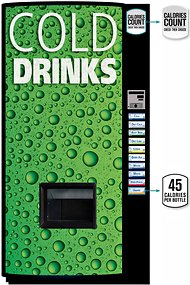My monthly (first Sunday) Food Matters column for the San Francisco Chronicle deals with the aftermath of the defeat of two California soda tax ballot initiatives.
Q: As one who campaigned for the soda tax in Richmond, I’m so discouraged by the millions spent by the soda industry to defeat it there and in El Monte (Los Angeles County). I don’t see how anyone without that kind of money can do anything to reverse obesity and diabetes.
A: Patience. These things take time.
Losing the soda tax campaigns taught health advocates some important lessons, not least that money buys votes. But it also taught that appeals to voter concerns about higher prices, job losses and personal autonomy are more effective than appeals based solely on health considerations.
Nobody likes taxes, and soda taxes are regressive, meaning that they impose a greater burden on the poor. Although the poor drink more sodas and have higher rates of obesity, and are likely to derive the most benefit from drinking less soda, taxes are still a hard sell.
Because dietary choices seem so personal, the influence of the food marketing environment on personal choices is not intuitively obvious. Everyone “knows” that larger food portions have more calories, but that doesn’t stop anyone from eating more calories when confronted with supersize foods or drinks.
The public health route
That’s why public health approaches work better than just telling people to eat less or eat better. The most effective measures change the environment of food choice by encouraging better options with price subsidies or portion-size caps and discouraging unhealthier choices, which is where taxes, bans on toys, and restrictions on marketing come in.
Such measures aim to make healthy choices the default. Most people are happy to live with the default option.
Food companies want their products to be the default. They will always oppose measures that might reduce sales, and they have no lack of resources to do so.
How might public health advocates counter such opposition?
Community approach
The Richmond example suggests the need for public health approaches that are community-based. This means going into communities and asking residents how they view the causes and consequences of their own health problems, and what they think should be done to fix those problems.
Communities set the goals. Advocates help communities achieve them.
This approach is fine in theory, but difficult in practice. Nobody makes food choices in a vacuum. Soda and fast food companies market their products to low-income and minority groups, and make sure their products are inexpensive, readily available and ubiquitously advertised.
To gain traction, food and beverage companies support the activities of community groups, sponsor playgrounds, and place their brand logos on everything they can. My favorite recent example is Coca-Cola’s $3 million gift to Chicago to fund an educational campaign to counter obesity and diabetes (no, I did not make this up).
Community-based campaigns not only can focus on the health consequences of poor diets but also can demonstrate to residents just how food companies put corporate health above public health and engage low-income communities in achieving corporate goals.
Teaching how the food marketing environment works should stimulate plenty of questions about why healthier foods aren’t more widely available in communities – and at affordable prices. It should raise questions about why school lunches aren’t better, and why soda advertising pervades athletic facilities. It should get people thinking about what food and beverage companies are actually doing in low-income communities.
Community-based public health should encourage residents to want to change their food environment.
It should get them thinking about wanting stores to provide healthier foods. Or they might want a farmers’ market, community gardens, better school food, and cooking lessons for their kids.
A method that works
These things really can help change eating behavior. The American Heart Association recently published a massive review – with rankings – of environmental interventions aimed at improving personal diets, physical activity levels, and smoking habits (See Circulation 2012; 126:1514-1563).
The review cites evidence for strategies to improve diets such as media campaigns, price subsidies, school meals and gardens, and restrictions on marketing, as well as taxes as portion caps. Some of these interventions are expensive, but others are not.
A review like this gives advocates plenty to work with.
Soda tax initiatives will not be going away. Neither will other such measures. Community leaders across the country will be continuing to introduce them as a means to reduce health care costs and to generate needed revenue for health-promoting activities.
It’s worth starting now to engage communities in efforts to improve their own health. Next time, engaged communities may be ready to vote for health over corporate interests.
Grassroots efforts take time. It’s too soon to be discouraged.
Marion Nestle is the author of “Why Calories Count: From Science to Politics,” as well as “Food Politics” and “What to Eat,” among other books. She is a professor in the nutrition, food studies and public health department at New York University, and blogs at foodpolitics.com. E-mail: food@sfchronicle.com.


![poll_copy_0[1]](https://foodpolitics.com/wp-content/uploads/poll_copy_01-300x253.jpg)





